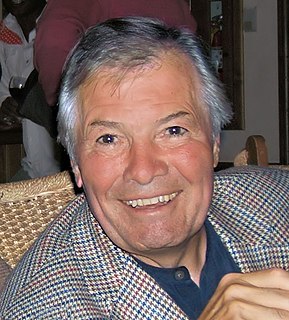A Quote by Susan Sontag
Related Quotes
Superhero science has taught me this: Entire universes fit comfortably inside our skulls. Not just one or two but endless universes can be packed into that dark, wet, and bony hollow without breaking it open from the inside. The space in our heads will stretch to accommodate them all. The real doorway to the fifth dimension was always right here. Inside. That infinite interior space contains all the divine, the alien, and the unworldly we’ll ever need.
When I say: "I'm looking at you, I can see you", that means: "I can see you because I can't see what is behind you: I see you through the frame I am drawing. I can't see inside you". If I could see you from beneath or from behind, I would be God. I can see you because my back and my sides are blind. One can't even imagine what it would be like to see inside people.
As the skies appear to a man, so is his mind. Some see only clouds there; some, prodigies and portents; some rarely look up at all; their heads, like the brutes,' are directed toward Earth. Some behold there serenity, purity, beauty ineffable. The world runs to see the panorama, when there is a panorama in the sky which few go to see.
We invent mind-space inside our own heads as well as the heads of others ... we assume these 'spaces' without question. They are a part of what it is to be conscious. Moreover, things that in the physical-behavioural world that do not have a spatial quality are made to have such in consciousness. Otherwise we cannot be conscious of them.
We all know of course, that we should never ever ever ever ever ever ever ever ever ever ever ever ever ever ever ever ever ever ever ever ever ever ever ever ever ever ever ever ever ever ever ever ever ever ever ever ever ever ever ever ever ever ever ever ever ever ever ever ever ever ever ever ever ever ever ever fiddle around in any way with electrical equipment. NEVER.
There are times that you have a plot in your head, but then you find that the characters don't want to do that. When you're looking at the story from the outside, you can create whatever twists and turns you want. But when you're writing, you're inside the characters' heads, and you see that they may be motivated to do something different.


































